Peaceful “Green March” 1975 Ended-up the Spain Occupation on Sahara
PERSISMA – The kingdom of Morocco holds a unique position in the history of colonization, as well as in the decolonization process, that deviates from the usual model that applies to other countries.
Indeed, due to its geographical situation as the gateway of Africa and the junction of the Mediterranean Sea and the Atlantic Ocean, Morocco was, for centuries, targeted by colonial ambitions, mainly European. These started in the second half of the XIX Century with the occupation by Spain, in 1884, of a settlement in the far south of the country, called villa Cisneros (Dakhla), followed by the conclusion by European powers of secret agreements dividing Morocco into zones of influence and occupation.
Hence, Morocco turned out, in 1912, divided into several zones of occupation:
• A central zone occupied by France;
• A northern zone including the posts of Sebta and Melilia and the neighbouring islands occupied by Spain;
• The region of Sakkiat El Hamra and Oued Eddahab as well as the cities of Tarfaya and Sidi Ifni under Spanish occupation;
• The international zone of Tangier administered by a Council of 12 foreign powers.
Forty-four years later, Morocco started to recover its territorial integrity gradually and through negotiated international agreements. In 1956, France and Spain retroceded the central and northern zones to Morocco; the zone of Tangier also became under Moroccan sovereignty.
Ever since, and in view of the continued Spanish presence in the north and south parts of the country, Morocco and Spain, seeking to develop relations of good neighbourliness turning towards the future, decided to adopt a policy of consultation and negotiation as a favourite means of resolving the territorial dispute. This resolute policy of peacefully settling disputes gave birth to the 195 8 Agreement by which the city ofTarfaya was retroceded to Morocco and to the 1969 Agreement that consecrated the return of Sidi Ifni.
After the launching by Late His Majesty Hassan II, on 6 November 1975, of a peaceful “Green March” to show the determination of the Moroccan people to complete peacefully the territorial integrity of the country ,the Madrid Agreement of 1975 that marked the end of Spanish presence in Sahara was signed.
This international Agreement was implemented, filed and registered at the United Nations. With this agreement, the decolonization of this part of Morocco has been completed. Unfortunately for our region, the spirit of hegemony, inherited from the years of the Cold War, has transformed this decolonization into a regional dispute, maintained by all means to prevent the Maghreb region to emerge as a centre of stability, harmony and shared prosperity. However, Morocco had constantly held out its hand to promote better relations with its neighbours, Algeria and Mauritania.
In order to end the impasse and to achieve progress towards a political solution the Kingdom of Morocco set a positive, constructive and dynamic process in motion, and submitted on 2007 an autonomy proposal for the Sahara, within the framework of the Kingdom’s sovereignty and national unity.
This initiative is part of the endeavours made to build a modern, democratic society, based on the rule oflaw, collective and individual freedoms, and economic and social development. As such, it brings hope for a better future for the region’s populations, puts an end to separation and exile, and promotes reconciliation.
Through this initiative, the Kingdom of Morocco guarantees to all Sahrawis, inside as well as outside the territory, that they will hold a privileged position and play a leading role in the bodies and institutions of the region, without discrimination or exclusion.
Thus, the Sahara populations will themselves run their affairs democratically, through legislative, executive and judicial bodies enjoying exclusive powers. They will have the financial resources needed for the region’s development in all fields, and will take an active part in the nation’s economic, social and cultural life.
The State will keep its powers in the royal domains, especially with respect to defence, external relations and the constitutional and religious prerogatives of His Majesty the King.
The Moroccan initiative, which is made in an open spirit, aims to set the stage for dialogue and a negotiation process that would lead to a mutually acceptable political solution.
As the outcome of negotiations, the autonomy statute shall be submitted to the populations concerned for a referendum, in keeping with the principle of self-determination The autonomy initiative presented by Morocco in 2007, had been recognized by the Security Council for its credibility. It represented a historic compromise and made it possible for the population of the region to exercise their right to express their will through democratically elected bodies while respecting the territorial integrity of Morocco. It is thus halfway between complete integration and independence. The proposed autonomy had a win-win focus and is still on the negotiating table. It is up to the other two parties to demonstrate corresponding realism and political will.
Morocco reiterated, its availability to continue to invest in the negotiation process in accordance with the Kingdom’s territorial integrity and national unity .we hope that UNSG through his Personal Envoy will convince the other parties to show the availability required and the necessary will to break the current impasse and open perspective for a real solution that the residents of the Tindouf camps look forward to find their dignity and freedom in the modem and democratic Morocco.
Pending the outcome of this solution, Morocco, will continue to assume its responsibility for the safety and wellbeing of the people of the Sahara and it will continue its development efforts on the basis of a new social and human collaborative approach to economic governance, prepared in
accordance with instructions of His Majesty the king Morocco will continue, as it has done since 1976, to invest each year in the Sahara region hundreds of millions of dollars, incommensurate with limited incomes from local resources that do not even represent 1110 of what the Moroccan government budget dedicated to improving infrastructure and public ser”.’ices in favour of local population.
In this context we have to note that phosphates reserves of the Sahara region represent only 1.6 pc of Moroccan reserves and 0.5 pc of quantities exported by Morocco and if OCP continues to develop phosphate in the region it is only for social considerations related to job security for the people of that region.
With regard to the issue of human rights ,the National Council on Human Rights has a constitutional status and article 161 of the constitution of 2011 is dedicated to this matter. The Council has a mandate at national and regional level and has established 13 regional commissions; two of them deal with human rights in the Sahara region. These two commissions are Regional human rights commission of Laayoune – Smara and Regional human rights commission of Dakhla – Aousserd.
These regional commissions have a mandate to monitor and control the situation of human rights at the regional level. They receive and investigate complaints, investigate violations and prepare special or periodic reports on measures taken for processing cases and complaints with regional or local characteristics. They ensure the implementation of programs and projects developed by the Council for the promotion of human rights in cooperation with local stakeholders. They help encourage and facilitate the creation of regional observatories on human rights, which should see to the follow up of the evolution of human rights at the regional level.
The United Nations Security Council in its resolution S/RES/2099 (2013) on 25 April 2013 has welcomed the establishment of the National Council for Human Rights, (NHRC) and its work, and recalled that Morocco cooperates with the human rights mechanisms of the UN.
Yet, despite all the vicissitudes, Morocco has consistently remained open not only to find a compromise solution to this regional dispute but also to promote better relations with its neighbours, Algeria and Mauritania and is ready to contribute with them to build a stable and prosperous Maghreb Region.
With its autonomy initiative, Morocco has already done its part of the way in the search for a winwin solution with realism, pragmatism, but also with a real political will to resolve this dispute. This initiative is the expression of a historic compromise in that it meets all parameters established by the Security Council of the United Nations.
we regret that the Moroccan desire for compromise that has been incorporated into a bold initiative of unprecedented autonomy was met by the unwillingness of the other parties who keep dogmatic and maximalist approaches and favour the status quo, with all risks that this attitude holds for all the peoples of the region as: risks of instability, insecurity, terrorism and separatism.
That is, a heavy responsibility before the other four people of the Maghreb, and especially to the people in the Tindouf camps, forced to live in inhumane conditions, including their confiscated freedom and future and the natural and fundamental right to be identified.
For Morocco, there is no other way than dialogue, openness and compromise, especially when external challenges and perils of our common neighbourhood challenge us.
Source: Press Release of The Embassy of Morocco in Jakarta


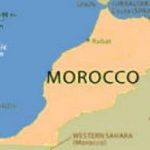
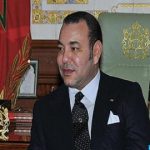
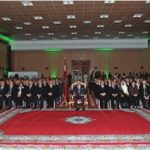



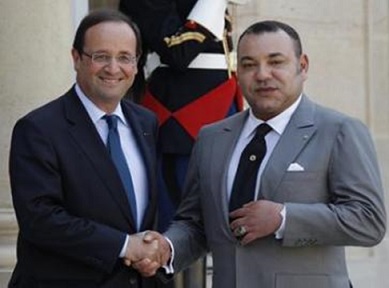
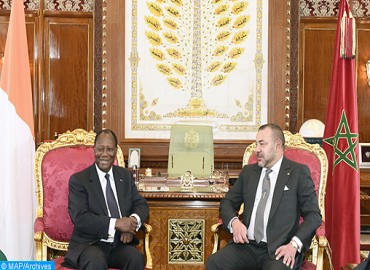



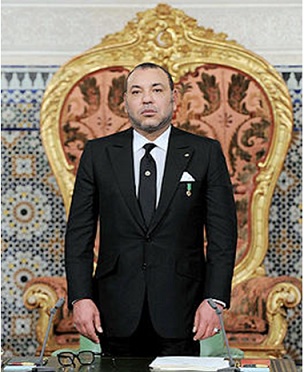




New Comments